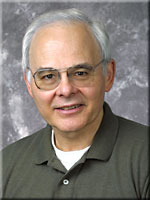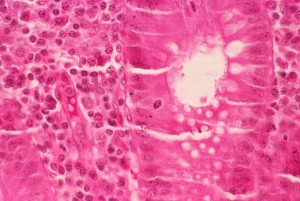 As you begin to prepare for USMLE Step 1 you will likely something about the Goljan lecture series and the Goljan pathology review book. Dr. Edward Goljan is a pathologist at Oklahoma State University Medical School (you can read more about him at his university website or on Wikipedia.) In my opinion, there is no one in the country who knows more about what student need to learn for Step 1 than Dr. Goljan. There are currently a number of board prep materials available to medical students thanks to Dr. Goljan, let me discuss a few of them.
As you begin to prepare for USMLE Step 1 you will likely something about the Goljan lecture series and the Goljan pathology review book. Dr. Edward Goljan is a pathologist at Oklahoma State University Medical School (you can read more about him at his university website or on Wikipedia.) In my opinion, there is no one in the country who knows more about what student need to learn for Step 1 than Dr. Goljan. There are currently a number of board prep materials available to medical students thanks to Dr. Goljan, let me discuss a few of them.
1. Audio Lectures: Years ago Dr. Goljan taught a prep course for both parts of the boards, both Step 1 and Step 2. Somehow, these lectures were recorded and are now shared between medical students across the country and across the globe. While I do not endorse illegal file transfers, these files are available for download on the internet and there is no other possible way to obtain them. From everything I have read and after countless requests of my own, I do not believe it is even possible to purchase the audio files. I will provide a couple of links, but they will, inevitably, not always work.
Your best bet is to google "Goljan Audio" or ask students in your school if you can use their copies. As you know, it is always risky to download data from websites you don't know. Link 1: This is a skydrive directory that seems to have all the lectures available for download individually Link 2: I used this website, filstube.com. It looks a bit shady but it worked well for me. Again, the best method would be to find some on a friend's computer. I wanted to mention what makes these lectures most useful. I do not believe that listening to them early in your first or second year of med school is helpful. They are not a great review for your school tests because they are only an overview. Also, when you begin to make your study plan for Step 1 you are not going to have 40 hours to sit and listen to lectures. Frankly, you will fall asleep and get nothing out of it. I found that listening when I exercised every day was a fantastic way to use them. That way I didn't feel guilty about taking an hour to exercise (which, by the way, is the best thing you can do when you are studying 10 hours every day) and I surely learned more from Goljan than I would have from Eminem and Coldplay. In fact, I know that just listening in the car and while running picked me up a good number of questions on Step 1. I still remember, word for word, one question that I absolutely would not have known if not for Goljan's lectures. I have heard that there are 'new' Goljan audio lectures since I took Step 1. I can not verify this, and I search using my usual websites only found the same audio files that I used 3 years ago. If anyone knows more about this, please leave a comment.
2. Dr. Goljan's Book, Rapid Review Pathology: There is ongoing debate about what is the best pathology review book for USMLE Step 1. The debate usually comes down to Dr. Goljan's Rapid Review of Pathology, and BRS Pathology. Dr. Goljan's book tends to have more images, a more modern layout, and does not rely solely on text to teach pathology while the BRS book is a no-nonsense text book which attempts to teach the most important points of pathology quickly. So, the choice depends on how you learn. While the issues at the heart of that debate will have to wait for a different post, we can all agree that BOTH books are very good. Links to the newest additions of both books on amazon.com are shown below. I used primarily the BRS Pathology book, but I have only ever heard great things about Goljan's book. In fact, some students believe it added double digit points to their board score. Link to Amazon.com and the newest editions of both the Goljan's Rapid Review, and the BRS book are shown below.
3. High Yield Notes: Less known are the Goljan High Yield Pathology Notes. The format that is available on the internet is not ideal, but I do think that these notes can be very useful. The document is a very rapid review of the pathology associations that are most common and most important to Steps 1 and 2. It is long (30-40 pages) and very dense (no pictures, small font size, all pages are full of text) but it highlights very efficiently the high points of pathology for the USMLE. Again, you can search the internet for "Goljan High Yield" and you will be inundated with places to download the file. Alternatively, I will attempt to keep my copy on my website until someone tells me that it is illegal, which I do not believe it can be as this, too, is not available for purchase anywhere else. Click the link below to download the pdf. Goljan High Yield Pathology Notes








 My name is Andrew and I am a first year resident training to be an ophthalmologist. I created ShortWhiteCoats to provide medical students, residents, and the public with all the information I spent so many hours looking for during medical school.
My name is Andrew and I am a first year resident training to be an ophthalmologist. I created ShortWhiteCoats to provide medical students, residents, and the public with all the information I spent so many hours looking for during medical school.







